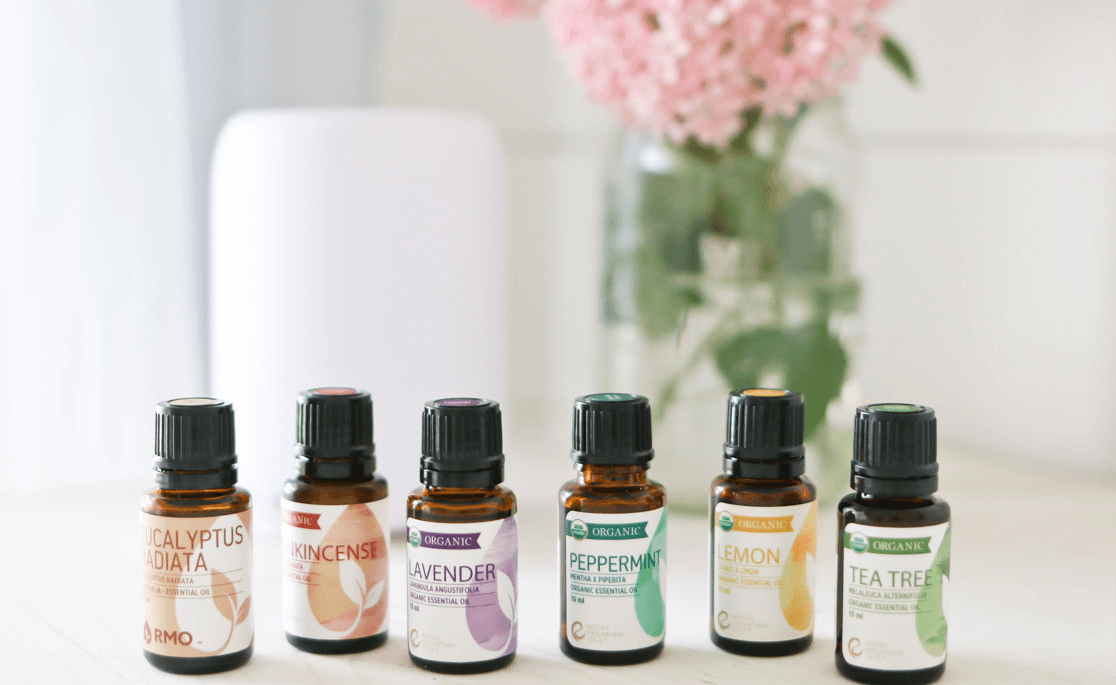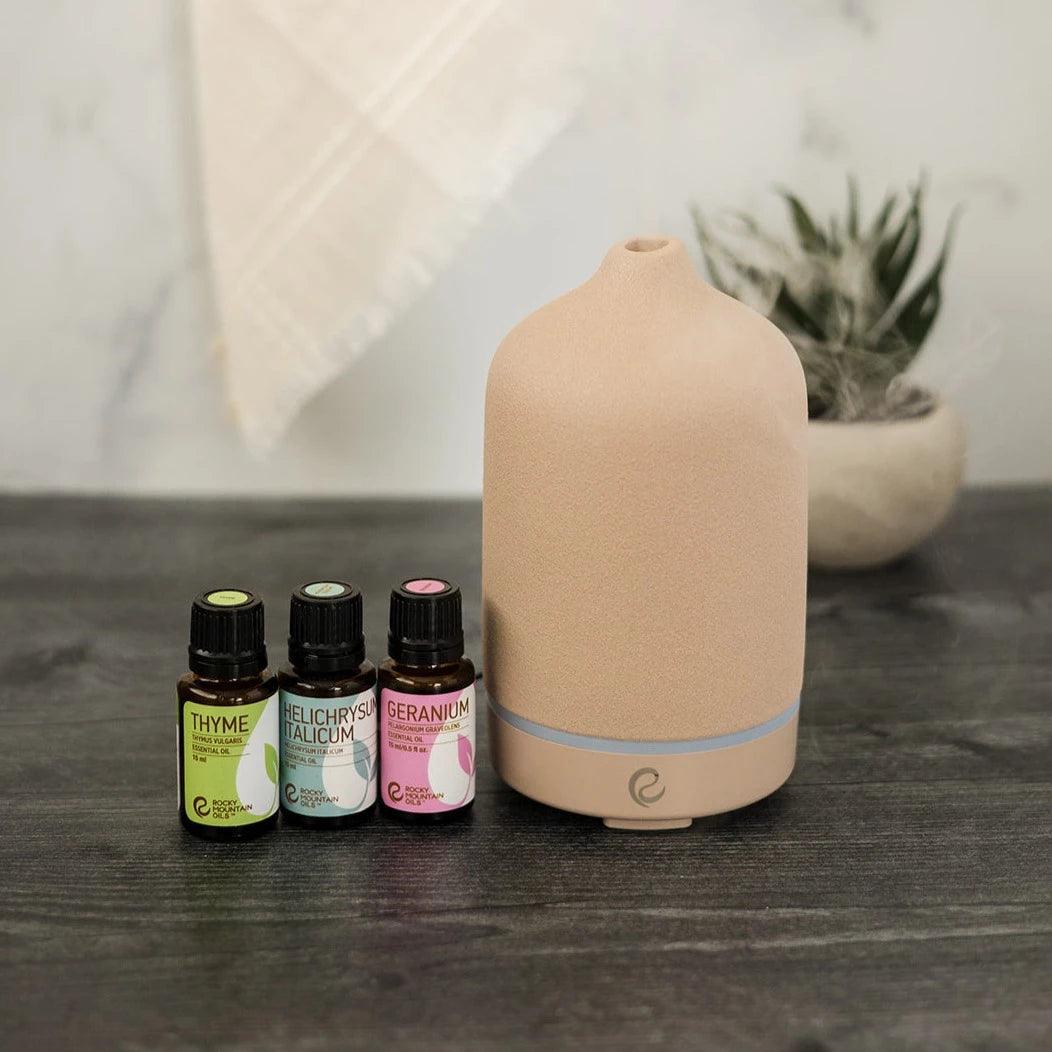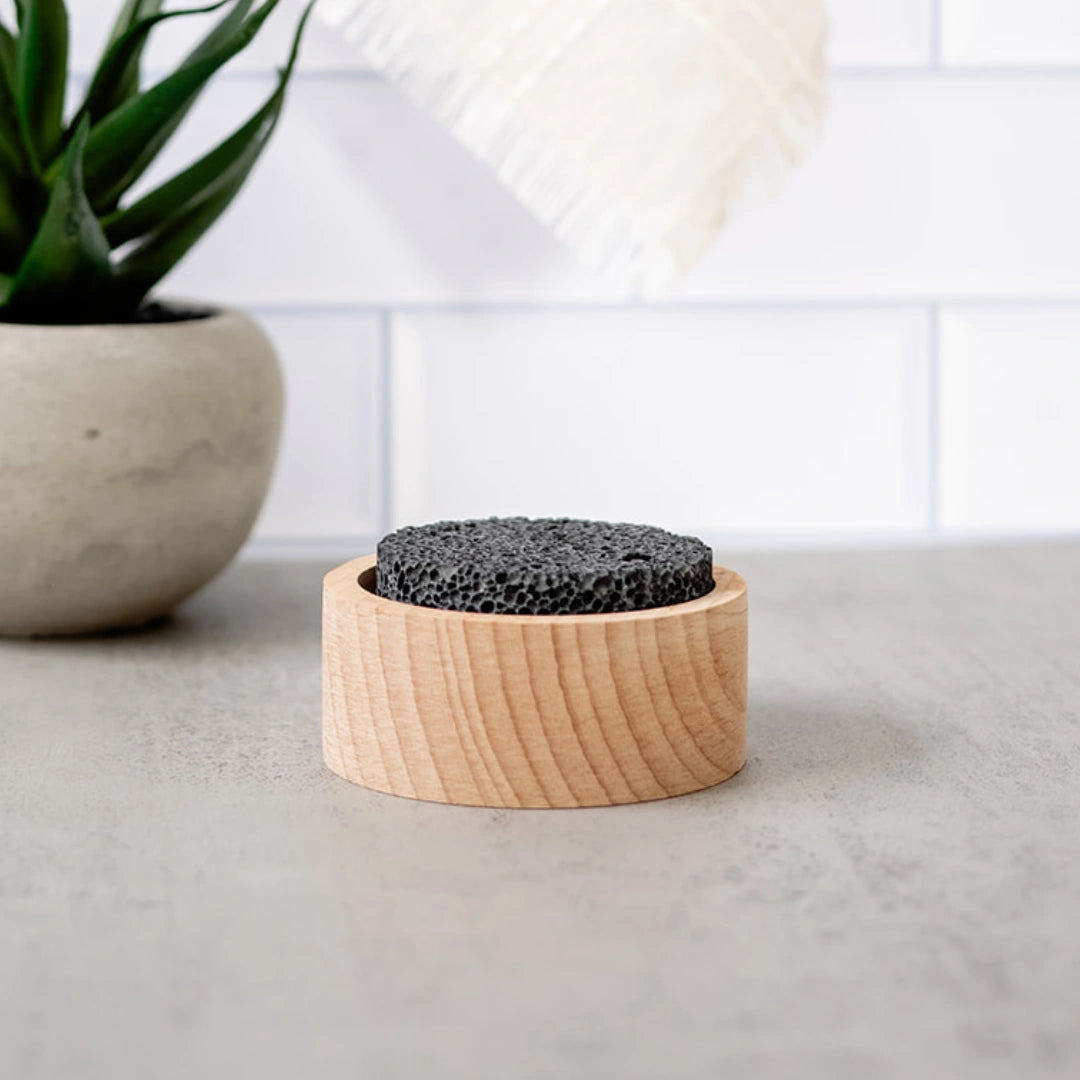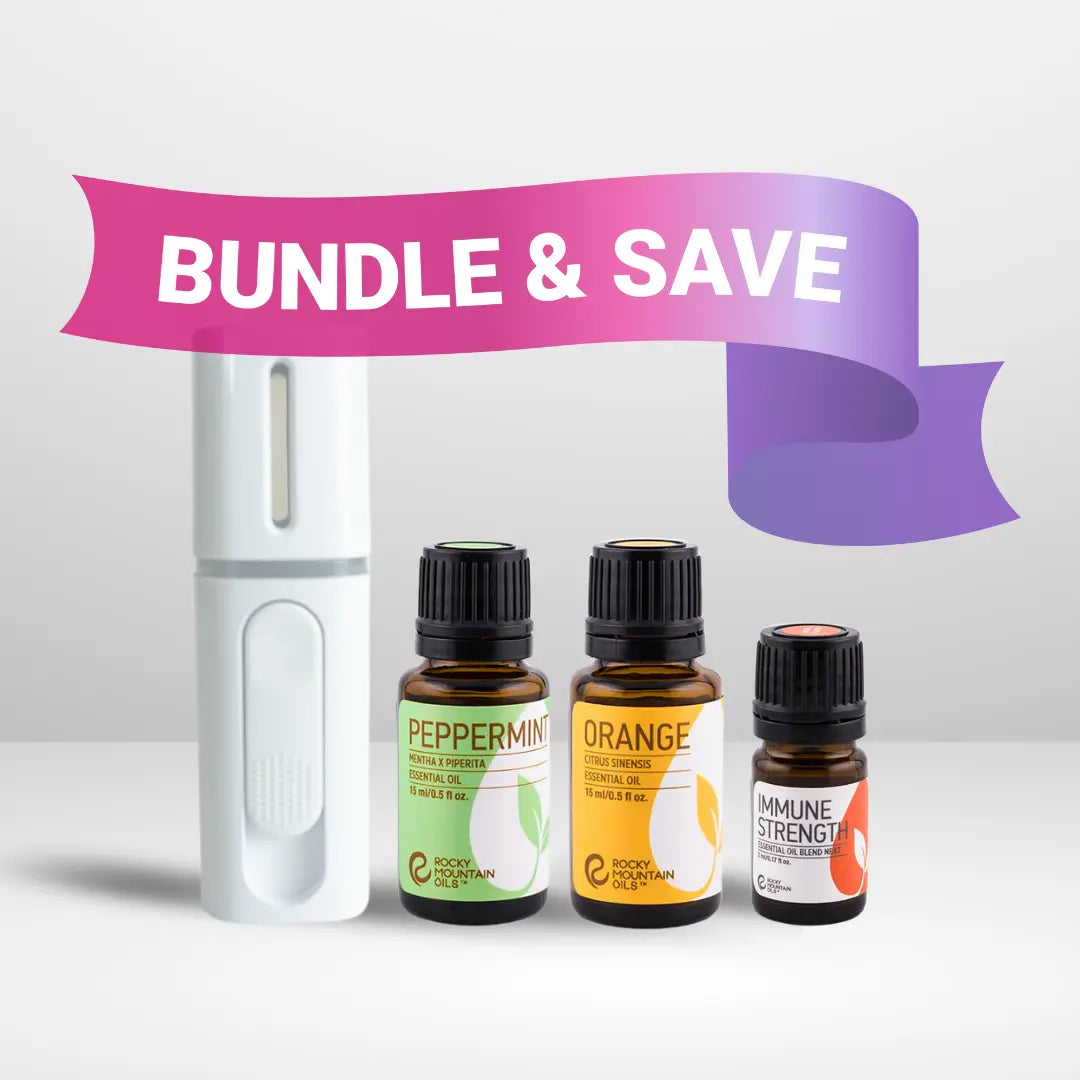Can You Burn Essential Oils? - A Comprehensive Guide
Introduction to Essential Oils
Essential oils, highly concentrated natural extracts from the flowers, leaves, and stems of plants, have been used for centuries for their aromatic and therapeutic properties. In this guide, we delve into the world of essential oils, exploring their history, extraction methods, and various uses, with a focus on whether they can be safely burned.
Jump here to figure out if you can burn essential oils. Jump to the “Can You Burn Essential Oils?” section.

The Essence of Essential Oils
Essential oils are more than just cordial scents; they are the essence of plants, capturing their healing and aromatic qualities. They have been utilized in various cultures for medicinal, spiritual, and wellness purposes.
Brief History of Essential Oil Usage
Tracing back to ancient civilizations, essential oils have been integral in practices ranging from religious ceremonies to medicinal treatments. Their timeless appeal and benefits continue to make them popular in modern wellness practices.
Understanding Essential Oils
To fully appreciate essential oils, it's crucial to understand what they are and how they're made.
What are Essential Oils?
Essential oils are volatile compounds found in plants that serve crucial biological functions, including attracting pollinators, defending against threats, and helping aid wound healing and adaptation to the environment. These aromatic oils are essential for a plant's survival and reproduction, and they have also been utilized by humans for various practical and therapeutic purposes.
How Essential Oils Are Extracted
The most common way of extracting essential oils is steam distillation. Other methods include cold pressing and solvent extraction. The process chosen depends on the type of plant and the desired properties of the oil.

The Science Behind Essential Oils
Understanding the chemical makeup and mechanism of action of essential oils is vital to appreciating their potential benefits and risks.
Chemical Composition of Essential Oils
Essential oils are concentrated extracts from plants, containing a diverse mix of compounds like terpenes, esters, aldehydes, and ketones, each contributing to the oil's unique therapeutic qualities and fragrance. These compounds can have various effects on the mind and body, making essential oils valuable in practices like aromatherapy and herbal medicine when used safely and appropriately.
How Essential Oils Work
Essential oils can interact with our bodies in two ways: through inhalation, where they affect emotions and respiratory functions by stimulating olfactory receptors and the limbic system, and through topical application, where they can be absorbed through the skin to exert localized or systemic therapeutic effects, depending on the specific oil used. However, caution should be exercised, and proper dilution and consultation with a healthcare professional are advisable due to their potency and potential individual variations in response.
Can You Burn Essential Oils?
The core question of whether essential oils can be burned is multifaceted, involving considerations of safety, efficacy, and method.
Direct Burning vs. Diffusing
Directly burning essential oils can alter their chemical composition, potentially reducing their therapeutic properties and increasing the risk of harmful byproducts. In contrast, diffusing essential oils using a device can safely disperse the aroma without altering the oil's integrity.
Pros and Cons of Burning Essential Oils
Pros:
- Aromatherapy Benefits: Burning essential oils can release aromatic compounds into the air, which can have therapeutic effects on mood and emotions. Different essential oils are believed to offer various benefits, such as relaxation, stress relief, and increased focus.
- Improved Indoor Air Quality: Many essential oils have natural antibacterial and antifungal properties. When diffused, they can help purify the air by eliminating harmful microbes and improving the overall quality of the indoor environment.
- Enhanced Relaxation: Certain essential oils, like lavender and chamomile, are known for their calming and soothing properties. Burning these oils can create a relaxing atmosphere and promote better sleep.
- Natural Fragrance: Essential oils provide a natural and chemical-free alternative to synthetic air fresheners and candles. They can be used to add pleasant fragrances to your living space without the potential health risks associated with artificial scents.
Cons:
- Allergic Reactions: Some individuals may be sensitive or allergic to certain essential oils. Burning oils can release these compounds into the air, potentially triggering allergic reactions, respiratory issues, or skin irritations.
- Safety Concerns: Burning essential oils requires the use of an open flame or a heat source. This poses a risk of fire accidents, especially if left unattended or if the oil burner tips over.
- Quality and Purity: The quality and purity of essential oils can vary widely. Low-quality or adulterated oils may not provide the therapeutic benefits expected, and they could potentially contain harmful additives or chemicals.
- Expense: High-quality essential oils can be expensive, mainly when used regularly. Maintaining a supply of various oils for different purposes can add up over time.
- Pets and Children: Some essential oils can be toxic to pets or children if ingested or inhaled in large quantities. Extra caution is necessary when using essential oils around pets and young children.
- Environmental Impact: The production of essential oils can have ecological impacts, as it often requires a large amount of plant material. Additionally, some rare or endangered plant species are used in the production of certain oils, which raises concerns about sustainability.
Methods of Using Essential Oils
There are various ways to enjoy the benefits of essential oils, from traditional methods to modern technologies.
Traditional Burning Methods
Historically, essential oils were commonly diffused using traditional methods such as ceramic burners and aromatherapy candles, allowing people to inhale their therapeutic scents. While modern electric diffusers have become popular, these traditional tools still have a place in aromatherapy for those who appreciate their simplicity and the ritualistic aspects they offer.
Modern Diffusers and Their Use
Modern diffusers, such as ultrasonic and nebulizing diffusers, offer a safer and more effective way to disperse essential oils into the air. They use water or air pressure to produce a fine mist, allowing the aroma to spread evenly without burning the oil.
Safety Measures for Burning Essential Oils
Safety is paramount when using essential oils, especially when considering burning or heating them.
Precautions to Take
To use essential oils safely, always follow the manufacturer's instructions and consider factors like room size, duration of use, and the presence of pets or children. Dilution, patch testing, proper ventilation, and using high-quality oils are crucial for ensuring a positive and safe experience with essential oils.
Risks of Improper Use
Improper use of essential oils can lead to respiratory irritation, allergic reactions, and fire hazards due to their volatile and concentrated nature. To ensure safety, dilute oils, use proper ventilation, perform patch tests, and follow guidelines for storage and usage.
Benefits of Burning Essential Oils
Despite the risks, there are numerous benefits to using essential oils, particularly in terms of aromatherapy and general well-being.
Aromatherapy and Wellness
Aromatherapy involves using concentrated essential oils from plants to improve well-being. It can enhance mood, reduce stress, aid in sleep, and boost concentration through the inhalation of these oils, but it's important to use them safely and in conjunction with other healthcare practices when needed.
Psychological and Physical Benefits
Inhaling specific essential oil aromas can have a positive impact on both the mind and body, offering benefits such as relaxation, energy enhancement, and relief from symptoms like stress and pain. These effects are achieved through the unique aromatic compounds in essential oils, which can promote relaxation, boost energy, improve sleep, and enhance overall well-being when diffused or inhaled.
Choosing the Right Essential Oils for Burning
Not all essential oils are made equal, and some are better suited for burning than others.
Types of Oils Suitable for Burning
Lavender, citrus, and peppermint essential oils are popular choices for burning or diffusing due to their pleasant aromas and therapeutic properties. Lavender promotes relaxation and sleep, citrus oils boost mood and have antibacterial properties, while peppermint is invigorating, helps with congestion, and enhances mental clarity.
Quality and Purity Considerations
Choosing high-quality, pure essential oils for burning is crucial because synthetic or adulterated oils lack therapeutic efficacy, may pose safety concerns, and can have unintended side effects. Additionally, pure oils support ethical and environmentally friendly practices while ensuring a consistent and effective aromatherapy experience.

Creative Ways to Use Burned Essential Oils
Burning essential oils can be both practical and creative.
Home Fragrance Ideas
Essential oils can transform your home's atmosphere by creating a relaxing ambiance in the living room with options like lavender and chamomile, enhancing the bathroom experience with scents like eucalyptus and mint, and promoting serenity in the bedroom with oils like lavender and cedarwood. Additionally, these oils can also freshen up the kitchen and dining area, making them more inviting for cooking and entertaining.
Therapeutic Uses
Burned essential oils can be used for therapeutic purposes such as easing respiratory issues, reducing stress, and promoting relaxation by releasing aromatic compounds into the air. Different essential oils offer various benefits, from soothing respiratory discomfort with oils like eucalyptus to enhancing mood and concentration with oils like citrus or rosemary.
Combining Essential Oils for Burning
Blending essential oils can enhance their effects and create unique aromas.
Blending Techniques
To blend essential oils effectively, start by understanding the properties of each oil and defining your purpose for the blend. Choose oils that align with your goal, consider their top, middle, and base notes, and dilute them properly in a carrier oil. Experiment with small batches, record your recipes, and prioritize safety by performing patch tests and being aware of any contraindications or sensitivities associated with the oils you use.
Recommended Combinations
Combining scents like lavender and eucalyptus promotes relaxation, while citrus and mint create an energizing effect by influencing our mood and emotions. These aromatic combinations can be used to create specific atmospheres and enhance well-being in different situations.
SUMMARY:
Is burning essential oils safe?
Burning essential oils can be safe when done with caution and proper equipment. It is important to use a diffuser or oil burner specifically designed for this purpose, as they are designed to control the temperature and prevent overheating.
Additionally, ensure that the essential oils you are using are of high quality and free from contaminants. It is also crucial to follow the manufacturer's instructions and never leave burning essential oils unattended to avoid any potential fire hazards. Overall, when used responsibly, burning essential oils can be a safe and enjoyable way to enjoy their aromatic benefits.
Can you burn essential oils in a candle?
No, you cannot burn essential oils in a candle directly. Essential oils are highly flammable and volatile substances that can be dangerous if exposed to an open flame. However, you can use essential oils to scent candles indirectly by adding a few drops of your preferred oil to the melted wax before pouring it into the candle mold. This allows the essential oil to infuse the candle, creating a pleasant aroma when the candle is burned. It's important to exercise caution when handling essential oils and candles to ensure safety.
How do you burn essential oils without a diffuser?
You can burn essential oils without a diffuser using various methods. One common way is to use a candle or oil burner. Simply fill the top bowl of the oil burner with water and add a few drops of your chosen essential oil. Then, light a tea light candle beneath the bowl, and as the water heats up, it will release the aroma of the essential oil into the air. Another method is to use a pot of simmering water. Fill a pot with water, bring it to a simmer, and then add a few drops of essential oil. Allow the steam to carry the scent throughout the room. Be cautious and ensure you don't leave the pot unattended.
You can also create a homemade reed diffuser by mixing essential oil with a carrier oil (like almond or jojoba oil) and placing reed sticks in the mixture. The reeds will absorb the oil and release the scent gradually. Additionally, you can add a few drops of essential oil to a cotton ball or a piece of fabric and place it in different areas of your home to enjoy the aroma. Lastly, you can incorporate essential oils into your cleaning routine by adding a few drops to your cleaning water, which not only cleans but also leaves a pleasant scent in your living spaces.
Frequently Asked Questions About Burning Essential Oils
How do essential oils affect mood when burned?
Burning essential oils can significantly enhance mood by releasing aromatic compounds that interact with the olfactory system, thereby influencing emotional and psychological well-being.
Can burning essential oils help with sleep disorders?
Yes, burning certain essential oils like lavender can encourage relaxation and improve sleep quality by creating a soothing atmosphere conducive to rest.
Are there any environmental considerations when burning essential oils?
While essential oils are natural, it's important to use them responsibly, as excessive burning can contribute to indoor air pollution and affect those with respiratory sensitivities.
How often should essential oils be burned for maximum benefit?
Moderation is vital; using essential oils for a few hours daily can provide benefits without overwhelming the senses or causing air quality issues.
Can burning essential oils replace conventional medicine?
While they offer numerous benefits, essential oils should not replace conventional medicine but rather complement medical treatments under guidance from healthcare professionals.
What is the best way to store essential oils for burning?
Essential oils should be stored in dark, cool places in tightly sealed containers to preserve their potency and prevent degradation.
Conclusion
In conclusion, burning essential oils can be a beneficial and enjoyable practice when done correctly. Understanding the properties, benefits, and precautions associated with necessary oil use is crucial for a safe and satisfying experience.




